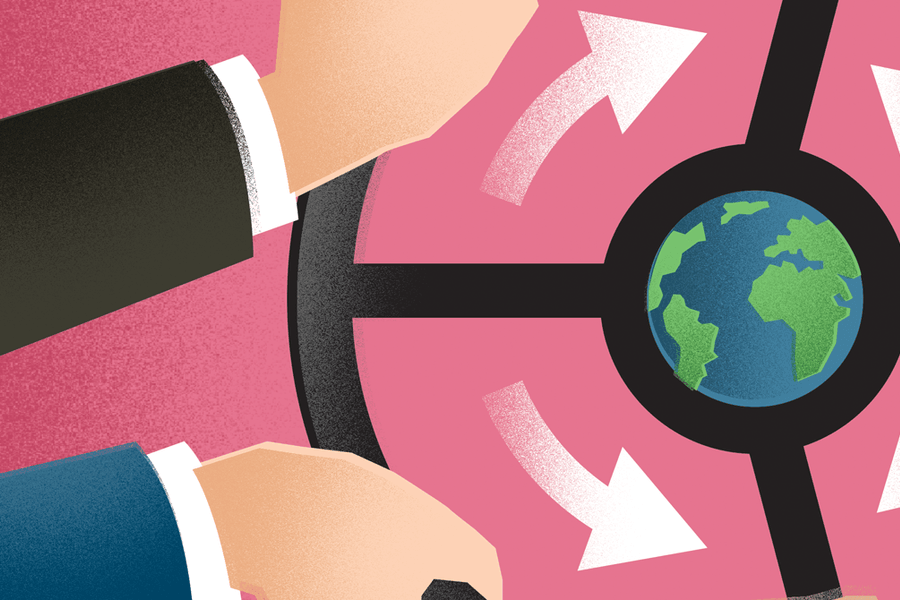The G7 is Canada, France, Germany, Italy, Japan, United Kingdom and the United States plus an EU representation. Together the G7 represents about 40% of global GDP. The same coordinated leadership used to be true of the G20 which includes China and Russia and which covers 90% of our planet’s GDP.
But more recently it has started to feel as if we are run by G -zero. There are ever increasing levels of discord, disagreement and angst. With no cohesive control of direction at the G-summits, it is easy to conclude that the risk of a geo-political crash has increased. Collective ideas and objectives that once united the world’s nations and which drove a common purpose and direction have fallen away. Is there anybody or any cohesive ideology still at the G-something steering wheel?
The cracks appeared when Russia invaded Crimea in 2014. That in turn drove a raft of anti-Russian sanctions including bans on exports of oil and gas technology, bans on lending to Russian oil companies and state banks and travel restrictions on the influential Russians. Russia responded with a total ban on food imports from the EU, United States, Norway, Canada and Australia. But that was not enough to stop Russia and Germany building a Baltic pipe line (Nord Stream) for Russian gas into Europe and this then irritating the Americans who started complaining about their NATO contributions. Russian gas that once flowed through the Ukraine into Europe will change its path, reduce fees paid to the Ukraine and perhaps weaken the country yet further. A weaker Ukraine is a temptation for a territorially aspirational Putin.
Apple ended up paying €14.3 billion to Ireland in illegally avoided taxes.
The well-publicised trade wars between the US and China have clearly split the US and Chinese governments, but again we have spill over. Ever since the Canadians arrested Meng Wanzhou (CFO of Chinese tech firm Huawei) the Chinese have sentenced two Canadians to death for drugs offences and arrested another two businessmen: Korvig and Spavor. The trade war has rolled into metal tariffs between the US and Canada in addition to the trade spat with Mexico (both of which are now settled). Trump has also found himself given to making threats over the cost of medicines to the UK’s NHS and tariffs on French wine. With trade sanctions being all the rage, Japan has been dragged in, with the US threatening 25% tariffs on Japanese car imports. The same is true of US vs Europe on the car front; and indeed on the genetically modified foods, Airbus subsidies and large fines and taxes on US companies fronts. Google has just been fined $5 billion by the EU and if you remember, Apple ended up paying €14.3 billion to Ireland in illegally avoided taxes. Trump’s complaints just divide the West further. Japan has now actively joined the fray and decided to have a go at Korea with restrictions on exports to the country.
Territorial disputes abound. India and Pakistan argue over Kashmir and occasionally shoot at each other. The Japanese defend their Senkaku islands from China whilst at the same time they pursue Russia to hand over the Kuril Islands in the North. And Russia continues to have military run-ins with the Ukraine. China continues to build out its presence in the South China Sea. There are lingering pockets of ISIS with aspirations for a new Caliphate as well as ongoing conflict in Syria.
Iran and North Korea’s nuclear ambitions seem to be one of the few areas that unite the rest of the world although the responses are mixed and not well co-ordinated. The US pulled out of the Iran deal and imposed sanctions unilaterally.
It is not just the G-meetings that seem to be failing. The US vs Europe debate now includes NATO and the United Nations, both under threat from reduced US funding. The EU will shrink if we brexit, leaving the Germans to slog it out against Italy and their rule-breaking run-away budget deficits whilst the rise of populism threatens more disruption and dislocation in Spain and Italy.
Is there anybody or any cohesive ideology still at the wheel?
Alliances and groups are all under pressure and generally the news is negative. The odds of a serious failing have increased, added to which the internal politics of the largest democracy, the US, have changed under Trump. He asserts the judiciary and the FBI are politically motivated and attacks the Fed’s limited rate cutting whilst contradicting state institutions. Trust in Congress has eroded under Trump and further polarisation of the public vs. politicians divide is unlikely to be positive.
So whilst these observations drive more risk into our valuation models, I do see light at the end of the tunnel. I think that a resolution of the trade is in the interests of both China and America. China would rather not be stimulating its economy to make up for lost trade and Trump would like an increase in confidence and business to boost his chances at the next Presidential election. That would once again allow the emergence of a co-ordinated, structured and widely supported consensus at G-summits.


